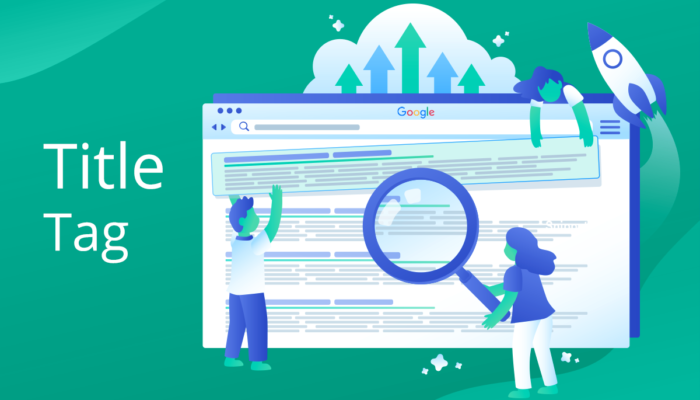
SEO is one of the most dynamic areas of Internet marketing. And it is quite difficult to keep up with all the changes and trends in the industry without following true experts in the niche. Of course, some things practically do not change from year to year in search engine optimization as in any business. However, there are still plenty of innovations and new “rules of the game” when it comes to promoting and marketing an online resource.
Many young SEO specialists and aspiring internet marketers, as well as website owners, want to learn all the tricks and topics from leading experts in the field. If you are one of those who want to keep track of industry changes, then continue to read this post. We have covered the top 5 best blogs and educational platforms about SEO that you should add to your everyday reading. This article was compiled with the help of Sydney SEO experts called https://aiad.com.au/.
All About SEO

In this collection, we have covered not only materials that can teach the basics of SEO but also resources for more advanced industry specialists who need to keep track of all changes in search engine optimization and content marketing. In general, here you will find everything (or almost everything) you need to learn the basics and improve your knowledge of SEO.
1. Seoquake
It is an excellent blog about SEO that helps people to dive deeper into any aspect of SEO – from website development and on-site promotion to link building, off-site, and technical SEO. By regularly checking SEOquake publications, you will become an expert in website promotion, analytics, and search engine marketing in general. In general, SEOquake is the obligatory must-read for those who want to work with SEO.
2. Official Google Webmaster Central Blog

If you read Google’s blog, you will always be aware of the latest corporation news and innovations in its products. Any change in the site ranking algorithms? Has the search engine launched a new algorithm? Any system bug detected? Stay up to date. On the official Google Webmaster Central blog, you are unlikely to find advice or case studies, and the information you find there can be 100% trusted.
3 – Search Engine Land
It is probably the most popular SEO blog. Why is it so widely read? All the publications on the Search Engine Land are written in a comprehensive manner. So, you do not need to be an expert on the topic in order to understand some posts.
Just like on any professional SEO blog that you can nowadays read, a large staff of authors works there. It is no wonder that the blog is updated 3-4 times a day, with quality materials being posted every 4-5 hours. At the same time, you can find several articles addressing the same topic, which makes it possible to consider the theme most fully. On the website of Search Engine Land, you can find everything related to working with search engines and social networks. So you do not necessarily need to look any further.
4. Search Engine Watch

Search Engine Watch is one of the oldest thematic blogs with a solid reputation and a team of true experts. The online resource is frequently updated and covers all possible topics regarding search engine optimization and digital marketing. In general, if you see material from SEW, you can be absolutely sure that it is a high-quality, interesting, and useful article.
5. Search Engine Journal
The Search Engine Journal blog is packed with helpful articles on every aspect of SEO. Publishing 5-10 fresh posts a day, the site administration ensures you don’t miss out on anything important from the SEO world. Spend a couple of minutes of your time on the subscription and receive regular updates from them!
Common SEO Blogging Pitfalls to Avoid
This kind of blogging can be an effective way to draw attention to your website or business. However, there are some key pitfalls to avoid when it comes to using blog posts for these purposes. Here are four common mistakes people make when trying to use blogging for it:
1. Failing to Set Goals
Before you start blogging, it’s important that you determine clear goals. This includes deciding what keywords you want to target, how often you plan on posting, and what type of content would benefit your readers the most. Without having a plan in place, your blog posts may not reach the right audience or even have an impact in search engine rankings.
2. Not Optimizing Posts
If you want your posts to rank high in search engine results pages (SERPs), they must be optimized properly. This means including relevant keywords in headlines and throughout the body of the post without keyword stuffing, writing compelling meta descriptions that entice users to click-through from SERPs and making sure all URLs are informative and optimized for both people and search engines alike.

3. Ignoring Title Tags
Title tags are essential for customising visitors’ browsing experience as well as informing them about what type of content they can expect from a page before clicking through a link on a search engine results page (SERP). When composing titles for blog posts and other content pieces, make sure they contain targeted keywords as well as convey enough information so that readers know whether or not the post will be worth their time reading it.
4. Overestimating Social Sharing Potential
As with other aspects of this kind of blogging, it’s important not to set expectations too high when it comes to social sharing potential – no one post is going “viral” overnight! That said, by optimizing posts properly and choosing attractive topics which will interest online readers, there is potential for social media engagement when sharing links on sites like Twitter or Facebook.
Special Bonus for You – MOZ
If our list of top SEO blogs were made as a rating, then the MOZ blog could take the first line in it. SEO, link building, content marketing, copywriting, social media, as well as inbound marketing – everything is covered. This blog is just perfect for both beginners and well-established SEO experts.
The highlight of the blog is the weekly Whiteboard Fridays with MOZ co-founder Rand Fishkin. In these videos, which are released on Fridays, Fishkin reveals a question or problem and demonstrates their train of thought on a whiteboard. In general, even if you do not work directly with SEO but handle a small aspect of it, then you still should read MOZ publications!
Why Do You Need It?

There are dozens of useful and interesting SEO resources – from social media accounts, YouTube, and Telegram channels to online courses, news publications, and specialized blogs such as Market Smiths.
To be a professional specialist, it is not enough to take a free online course on SEO or read a book. You need to constantly improve your skills and keep track of what’s happening around. Study professional blogs, follow the experience and opinions of dedicated experts, go to industry conferences. All the above will help you do your work well and develop professionally. Do not be limited to one educational program, a single author or teacher. You should always have a broader view.
In addition to the above resources we have outlined, you might want to continue exploring other SEO resources. If you happen to be researching SEO for your business, click for more information about how SEO can be applied to your business.
Our selection of the best SEO blogs will help you to comprehensively develop in the field of search engine optimization, receive valuable first-hand information, keep abreast of the latest news and SEO trends. The main selection criteria that we used are the expert and useful information, company or author’s popularity, activity, and the relevance of publications. Just browse the above sites, check their publications, and subscribe. Thus, you will receive regular notifications to your email and will have all juicy must-reads right in your mailbox. No matter if you are an expert SEO specialist or just stepping into this business, the above educational platforms will become your best guide-books.
Conclusion
It is a critical aspect of digital marketing, no matter what area of business you specialize in, and keeping up-to-date with all the latest trends and options available is absolutely essential. The five blogs mentioned above are some of the best sources for up-to-date information, but there are also plenty of other great resources out there to explore.
It’s important to look out for blogs that keep up with the latest changes in the industry, provide easy-to-digest news stories, tutorials, and tips. It’s also worth taking some time to investigate different topics within search engine optimization such as content marketing, link building strategies and more.
Finally, look at how often new content is posted – if it’s regularly updated then this is a good sign that it’ll be providing useful insights into the day-to-day changes happening in digital marketing.








